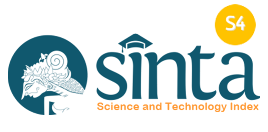THE EFFECTIVENESS OF IMPLEMENTING A SLIMS-BASED LIBRARY AUTOMATION SYSTEM IN THE REGIONAL PUBLIC LIBRARY OF TANAH DATAR REGENCY
DOI:
https://doi.org/10.24269/pls.v7i1.6640Abstract
This research was conducted to obtain information about the effectiveness of using the SLIMS-based library automation system by librarians at the Tanah Datar District Public Library and to identify the obstacles encountered in its use. In this study, descriptive research was combined with a qualitative approach using the SLIMS-based library automation system by librarians at the Tanah Datar District Public Library and to identify the obstacles encountered in its use. In this study, descriptive research was combined with a qualitative approach. Based on research findings, the effectiveness of using the SLIMS-based library automation system at the Tanah Datar District Public Library in various forms of library activities includes the procurement and processing of library materials, fast circulation processes, and librarian satisfaction with the use of the SLIMS-based library automation system. Based on indicators measuring the effectiveness of implementing the SLIMS-based library automation system, such as data security, time, accuracy, relevance, variety of reports, physical comfort, information quality, and information technology, it is proven that, after using the SLIMS-based library automation system, library management and services to users as a whole run more effectively and efficiently.
References
Davies, R. (2015). Industry 4.0 Digitalisation for productivity and growth. http://www.europarl.europa.eu/RegData/etudes/BRIE/2015/568337/EPRS_BRI(2015) 568337_EN.pdf
Fatmawati, E. 2020. Pengenalan Otomasi Perpustakaan Terintegrasi SLIMS. Jurnal Ilmu Perpustakaan dan Informasi 9(1): 5-9. Diakses 21 November 2021.
Meredith, TR. (2014) Using Augmented Reality Tools to Enhance Children,s Library Services. Teknology, Knowing and Learning. DOI: 10.1007/s10758-014-9234-4 MIT Press.
Mutaki, Hafid. 2017. Implementasi Sistem Automasi Perpustakaan di Universitas Islam Negeri Sunan Kalijaga Yogyakarta. Jurnal Hanta Widya, Volume 5 Nomor 9.
Narbuko, C. dan A. A. 2015. Metodologi Penelitian: Memberikan bekal teoretis pada Mahasiswa tentang Metodologi Penelitian serta diharapkan dapat Melaksanakan Penelitian dengan Langkah-Langkah yang benar. Jakarta: Bumi Aksara.
N. Nurwanto, “Aplikasi Perpustakaan Berbasis Web Dengan Mengimplementasikan Metode Sequential Search,†INFORMATIKA, Vol. 13, No. 1, pp. 24–31, 2021.
Perpustakaan Nasional RI. 2019. Standar Nasional Perpustakaan Provinsi, Kabupaten/Kota, Kecamatan, Desa/Kelurahan. Jakarta: Perpustakaan Nasional RI.
Qashdina dan Evayani. 2018. Analisis Efektivitas Penerapan Sistem Informasi Akuntansi: Studi Empiris pada Hotel-Hotel Berbintang di Banda Aceh. Jurnal Ilmiah Mahasiswa Ekonomi Akuntansi 3(1): 105. http://jim.unsyiah.ac.id/eka. Diakses 07 Juli 2021.
Sartika, R. 2019. Evaluasi Penerapan Integrated Library Sistem (SLIMS) di Dinas Perpustakaan dan Kearsipan Aceh Menggunakan Pendekatan Human Organization Technology (HOT) Model. Skripsi. Program Ilmu Perpustakaan Universitas Islam Negeri Ar-Raniry Darussalam - Banda Aceh: Aceh. https://repository.ar-raniry.ac.id/id/eprint/10111/2/BAB%20IV%20%28revisi%20pertama%29%20 %20Copy.pdf.
S. Bonnie. (2018, Maret). Menyapa revolusi industry 4.0 dengan inovasi tepat guna. Materi konferensi Nasional kepustakawanan Indonesia 2019, Kampus 3 ubaya, Surabaya.
S. Amuda, P. D. Larasati, and A. Irawan, “Rancang Bangun Sistem Aplikasi E-Library,†J. SISKOM-KB (Sistem Komput. dan Kecerdasan Buatan), Vol. 2, No. 1, pp. 25–31, 2018.
Downloads
Published
How to Cite
Issue
Section
License
Licence
This Journal will place Author as Copyright Holder, The non-commercial use of the article will be governed by the Creative Commons Attribution license as currently displayed on Creative Commons Attribution-NonCommercial-ShareAlike 4.0 International License.

Author(s)' Warranties
The author warrants that the article is original, written by stated author(s), has not been published before, contains no unlawful statements, does not infringe the rights of others, is subject to copyright that is vested exclusively in the author and free of any third party rights, and that any necessary written permissions to quote from other sources have been obtained by the author(s).
Plagiarism Notice
PUBLIS Editorial board recognizes that plagiarism is not acceptable and therefore establishes the following policy stating specific actions (penalties) upon identification of plagiarism/similarities in articles submitted for publication in PUBLIS. PUBLIS will use Turnitin's originality checking software as the tool in detecting similarities of texts in article manuscripts and the final version articles ready for publication. A maximum of 30% of similarities is allowed for the submitted papers. Should we find more than 30% of the similarity index, the article will be returned to the author for correction and resubmission.

_baru.png)










